Maltodextrin Sweetners: A Threat to Diabetics Hiding in Plain Sight
Found in "Diabetic Safe" US labeled Food Products, Maltodextrin is 60% MORE Glycemic than Sugar.
Yes, people should read labels.
Yes, people could look up each ingredient and assess the risks on their own.
Or.. people should be able to rely on the regulators we fund with our taxes to protect vulnerable populations from obvious risks to their health.
Yet, we can't rely on these regularors or authorities, otherwise products containing Maltodextrin would be required to disclose their adverse Glycemic impacts on Diabetic consumers.
While beyond the scope of this article, I am sure we could find credible sources to draw a straight line between this state of affairs and lobbyjng interests impairing our legislative bodies and regulatory agencies.
69% more glycemic than sugar, Maltodextrin could all pose serious threats health to Diabetics. Yet, midleadingly labeled as “Suitable for Diabetics” or “Zero Sugar”, many product labels arguably imply these products are ‘safe’ for Diabetics.
For example, AldiUSA offers bulk baking sweeteners which have Maltodextrin as the primary ingredient in their so-called Stevia and Sucralose (Splenda) labeled baking sweeteners. I sent them a notice back last spring (2024). No response. These products are still being sold as pictured 👇 below.
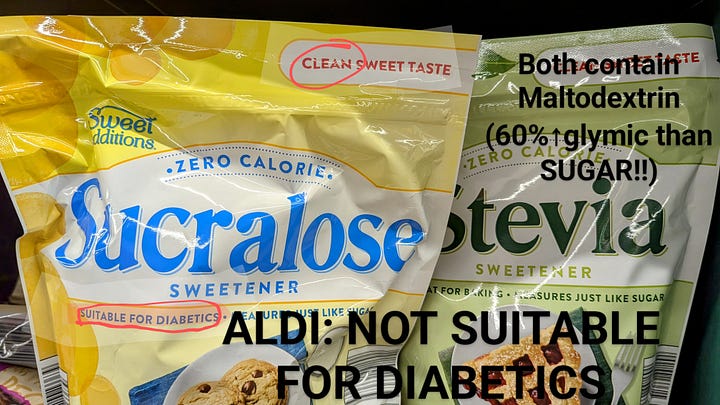
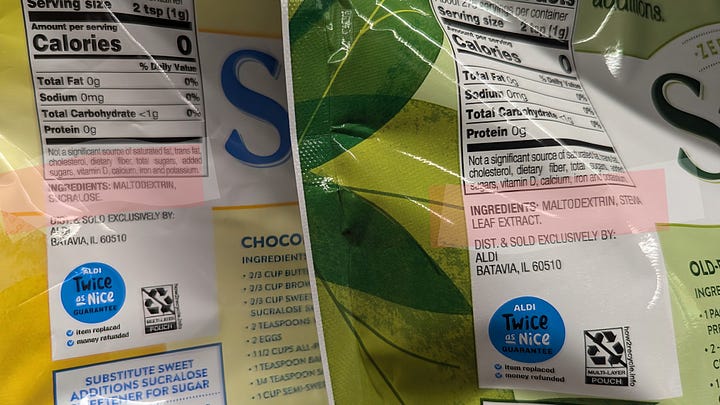
Misleading purchasers who may be seeking Diabetic friendly Low Glycemic Products, stores like Walmart sell Gatorade Zero Sugar Electrolytes. These do NOT have sugar, but they use Maltodextrin, while 60% MORE Glycemic than Sugar, apparently there is no requirement to disclose Maltodextrin as a Sugar, since.. it's NOT a sugar.
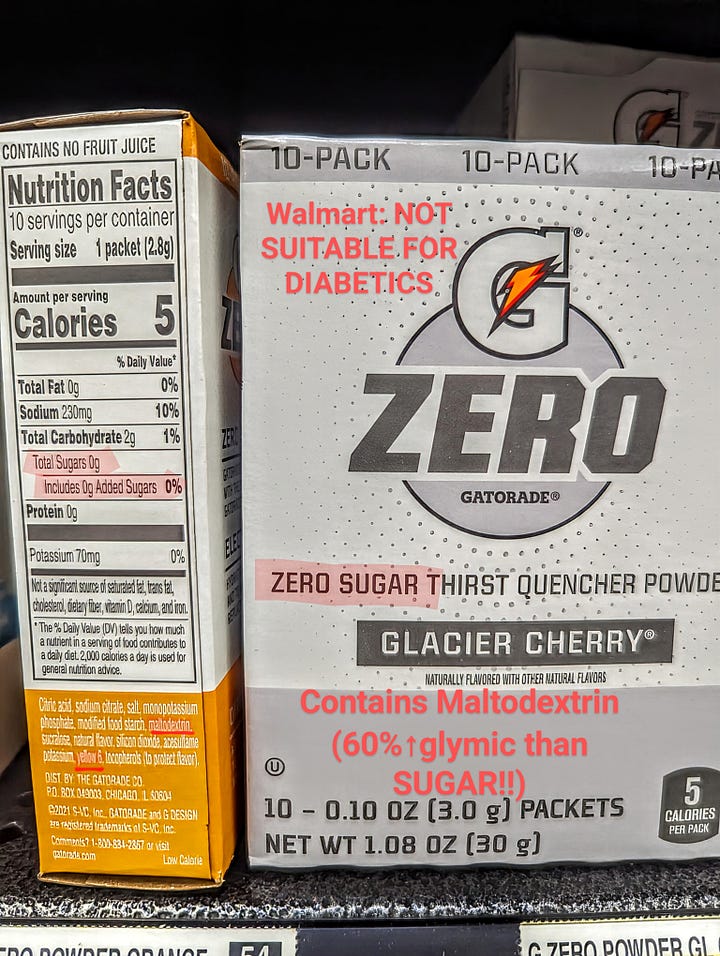
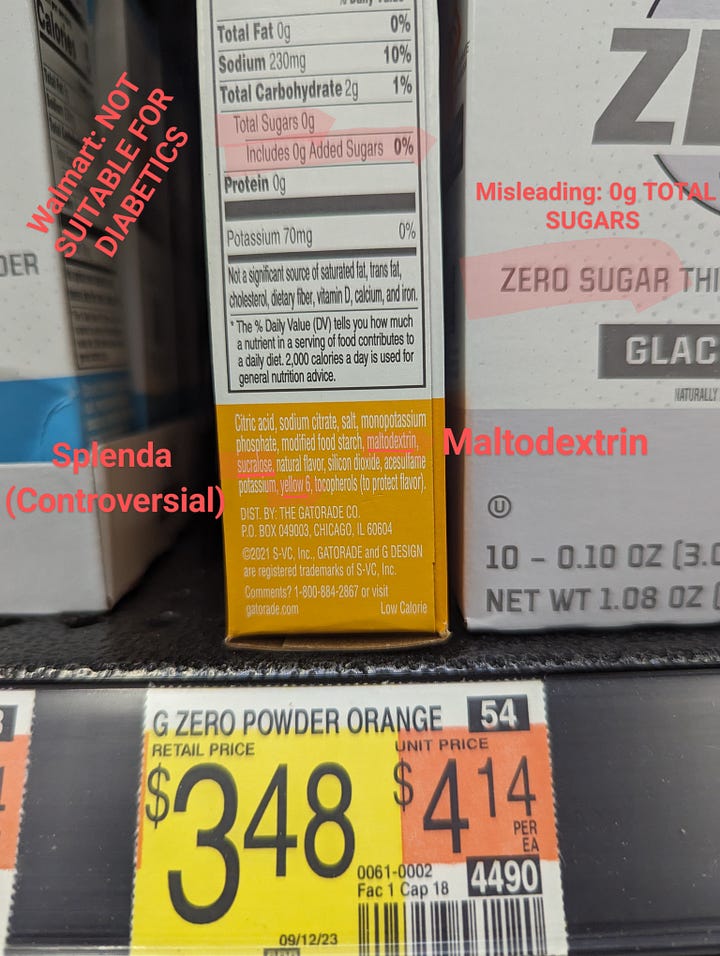
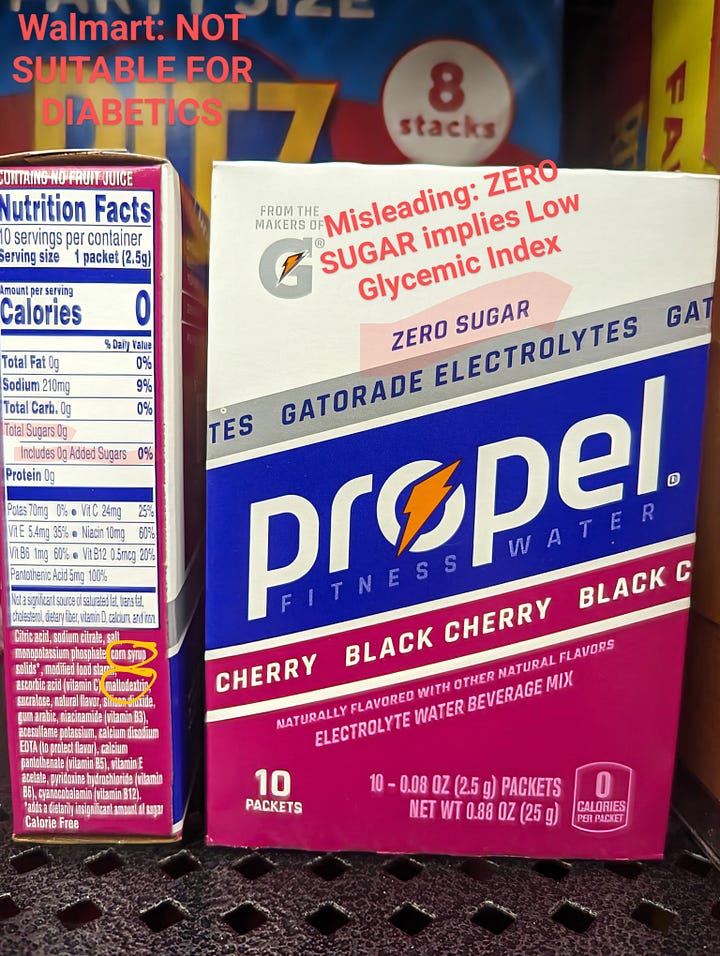
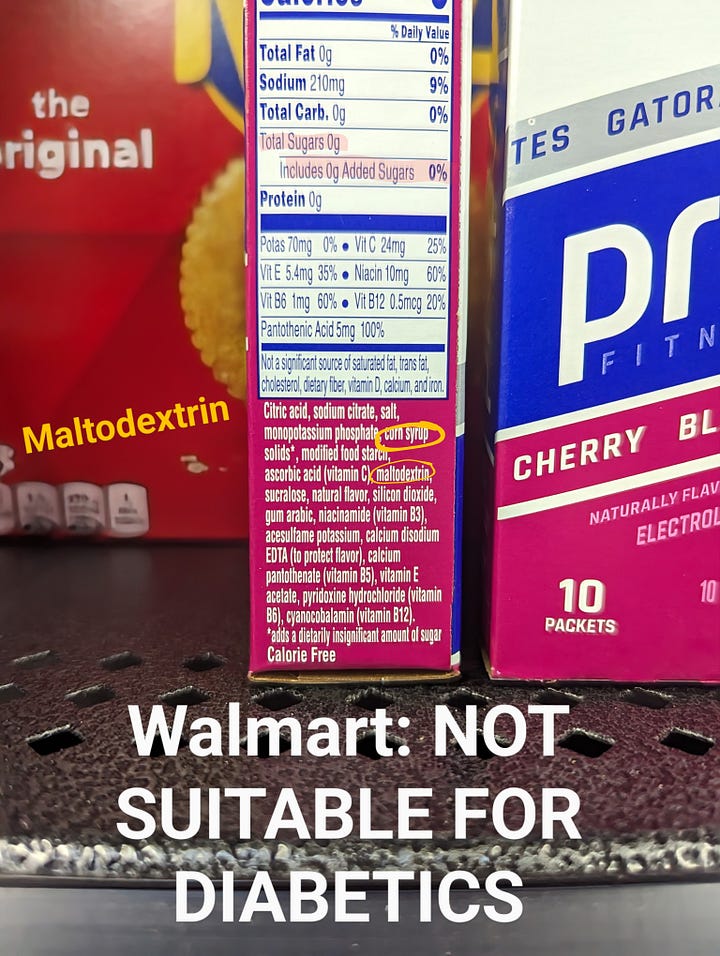
This dubious labeling scheme allowed by the USA and other government regulators needlessly misleads consumers, and could impact or even harm consumers who are sensitive to rapid glycemic response inducing ingredients.
What to buy? What may actually be safe for glycemic sensitive consumers? Sold at @WalMart, Body Armor FlashIV is the ONLY one pictured which is Zero Glycemic (Zero GI), using Stevia instead of Maltodextrin.
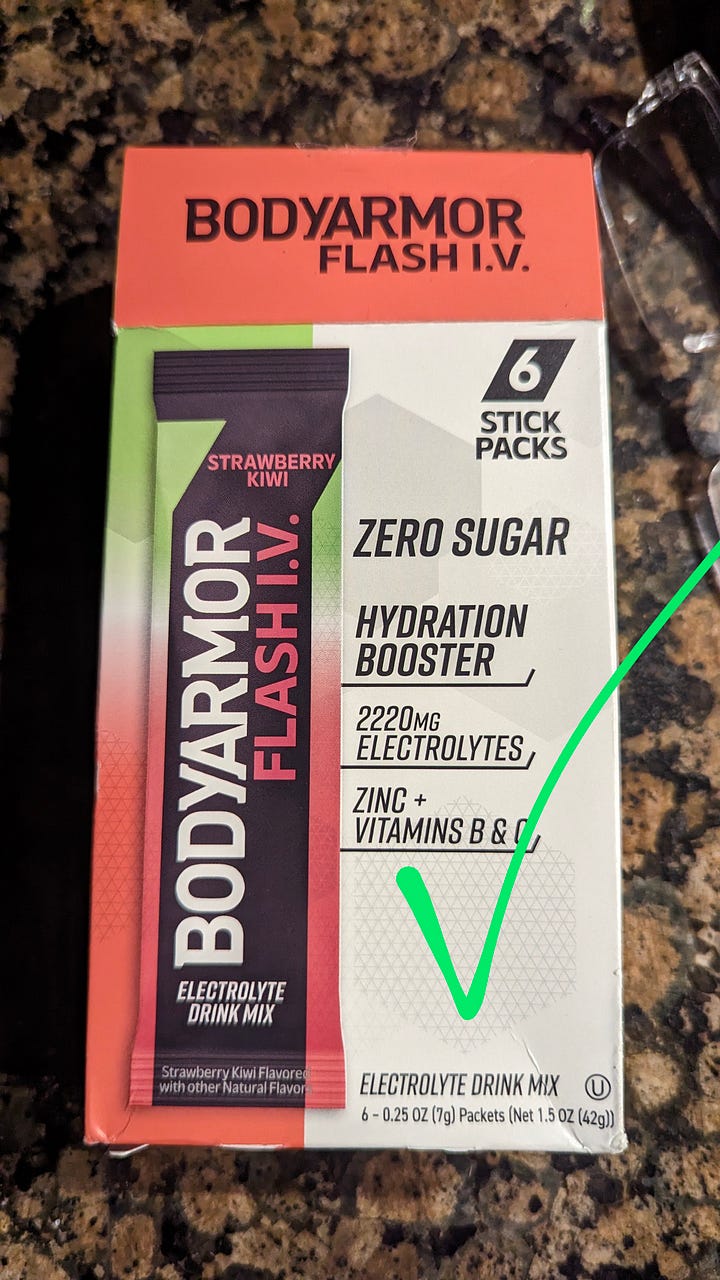
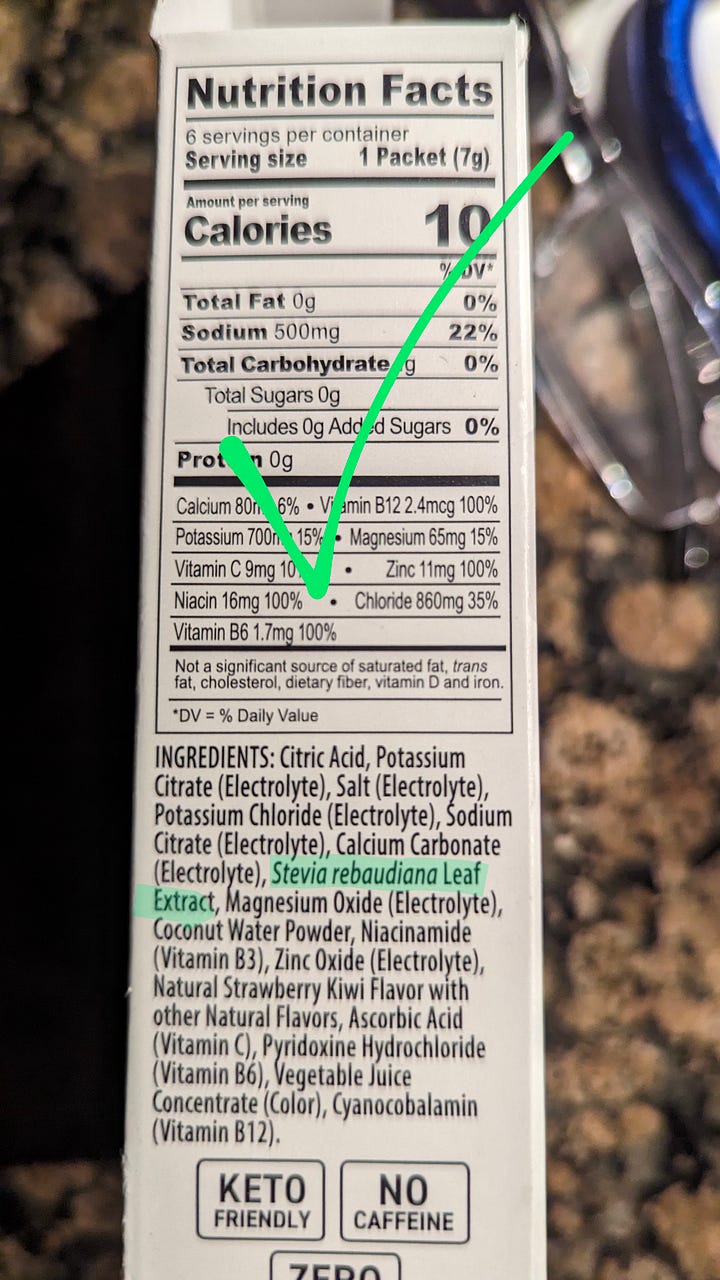
From an AI Report generated from the Brave Browser, report linked below, here are the facts about this situation:
Maltodextrin, a widely used food additive, has a high glycemic index (GI) rating, which can affect individuals with diabetes. The GI measures how quickly a food raises blood sugar levels after consumption.
* **Higher GI than table sugar**: Maltodextrin has a GI of 110, compared to glucose (100) and table sugar (80). This means it can cause a more rapid increase in blood sugar levels.
* **Potential risks for diabetes management**: Consuming large quantities of maltodextrin-rich foods can lead to a spike in blood sugar levels, making it challenging for individuals with diabetes to manage their condition.
* **Athletes and performance**: Maltodextrin's rapid absorption and high GI make it useful for athletes as an ingredient in sports drinks or recovery supplements to replenish glycogen stores and enhance performance during prolonged exercise.
* **Individuals with diabetes or insulin resistance**: Due to its rapid liberation of glucose molecules when digested, maltodextrin can cause a rapid increase in blood sugar levels when consumed in large quantities, posing a risk for individuals with diabetes or insulin resistance.
**Key Takeaways**
* Maltodextrin has a high glycemic index, which can impact blood sugar control in individuals with diabetes.
* Consuming large amounts of maltodextrin-rich foods may increase the risk of high blood sugar levels and complications for those with diabetes.
* Athletes may benefit from maltodextrin's rapid absorption and high GI for performance enhancement, but individuals with diabetes should exercise caution when consuming it.
https://search.brave.com/search?q=maltodextrin+glyce.ix+diabetes



